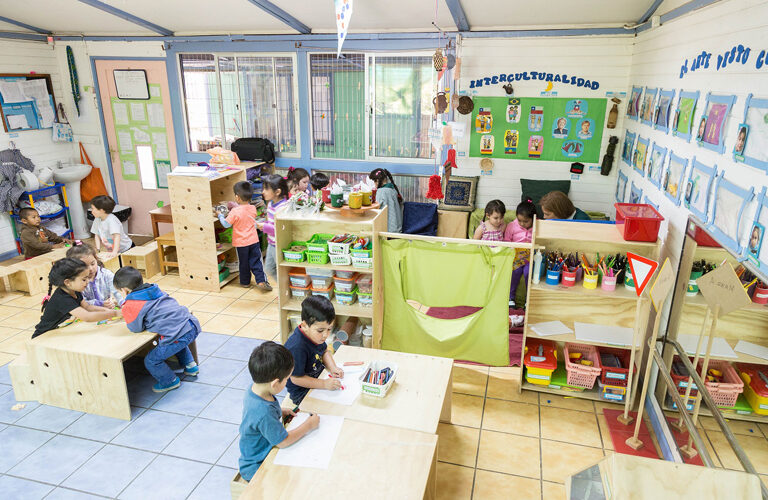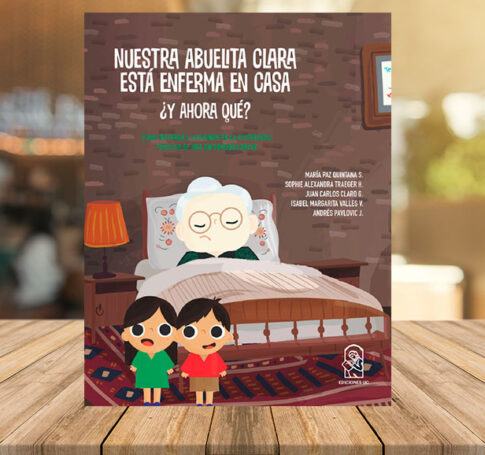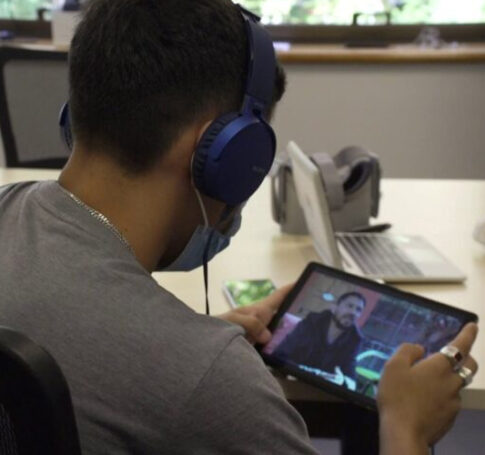
DESCRIPTION
An interdisciplinary team led by academics Cynthia Adlerstein, from UC School of Education, Patricia Manns and Alberto González from UC School of Design, created MAFA (a physical learning environment modeling system), a technology that changes the paradigm of traditional learning environments in Chilean pre-school education, by synergistically integrating three components: a set of practical devices specially designed for preschoolers that replace traditional furniture; a virtual platform for pre-school teachers to share pedagogical documentation and experiences; and learning resources for children to participate in thinking about and modeling the design of their classrooms.
These highly innovative components empower the children to inhabit the learning environments pedagogically with their teaching teams. MAFA makes physical environments flexible and meaningful for learning and establishes educational communities that co-construct learning by exploring, creating, and appropriating physical spaces. As a result, the MAFA system favors comprehensive wellbeing and universal access to learning, thereby contributing to educational justice starting in pre-school.
PROBLEM ADDRESSED
The type of furniture widely used in pre-school education tends to follow a traditional and mono-functional style that replicate adult or school ergonomics but smaller. Standard furniture consists of tables, chairs and artifacts that prevent preschoolers from being protagonists and proper citizens by co-constructing the physical environment, as the third educator in the educational process.
SOLUTION
This technology allows the children to inhabitant and co-construct their physical learning environments. The MAFA system turns classrooms into a third educator. It creates an organic and flexible ecosystem that facilitates children’s self-determination and ability to decide how to use each of the parts making up their physical environment for learning by interacting as protagonists with educators and technicians in this co-construction, thereby exercising their citizenship, where their collective imagination is the only limitation.
BENEFICIARIES
Junji
- License (2018)
- Number of beneficiaries: 16 preschools, benefiting more than 1,300 children (2020)
Educational Effect
- Commercial license option (2020)
University of Talca
- License for early childhood teacher training (2020)
HISTORY
- 2012 – FONDEF Idea, applied science
- 2015 – FONDEF Technological Research
- 2015 – EduLab Program
- 2016 – 2018 – Agreement with Ediciones UC for the commercialization of the texts: “Pedagogías para habitar el Jardín Infantil” (pedagogies for inhabiting preschools) and “Valorar el modelamiento del ambiente físico de aprendizaje en la educación parvularia. Manual para la aplicación de ME.MAFA” (Valuing modeling of the physical learning environment in preschool education. ME.MAFA System User Manual). You can find them
- 2018 – Licensed to the National Board of Preschools (Junji), a public agency in charge of 3,230 nurseries and kindergartens nationwide, which represents 72% of the national total with state funding, reaching +190,000
- 2019 – VRI Iceland (University of Akureyri) research internship to compare technology transfer models with MakEY (Makerspaces Early Years).
- 2019 – UC EduLab, EduGlobal Program; internship in Finland for the research team.
- 2020 – Licensed to the University of Talca for expanding the MAFA system to early childhood teacher training and expanding the continuous training model included in the system (2019).
- 2020 – License option signed with Efecto Educativo, with a view to reaching a commercial agreement to extend MAFA’s impact to private education and Latin America.
- 2021 – MAFA’s becomes a global for constructing learning environments, under the World Bank publication “Quality Early Learning: Nurturing Children’s Potential.”



